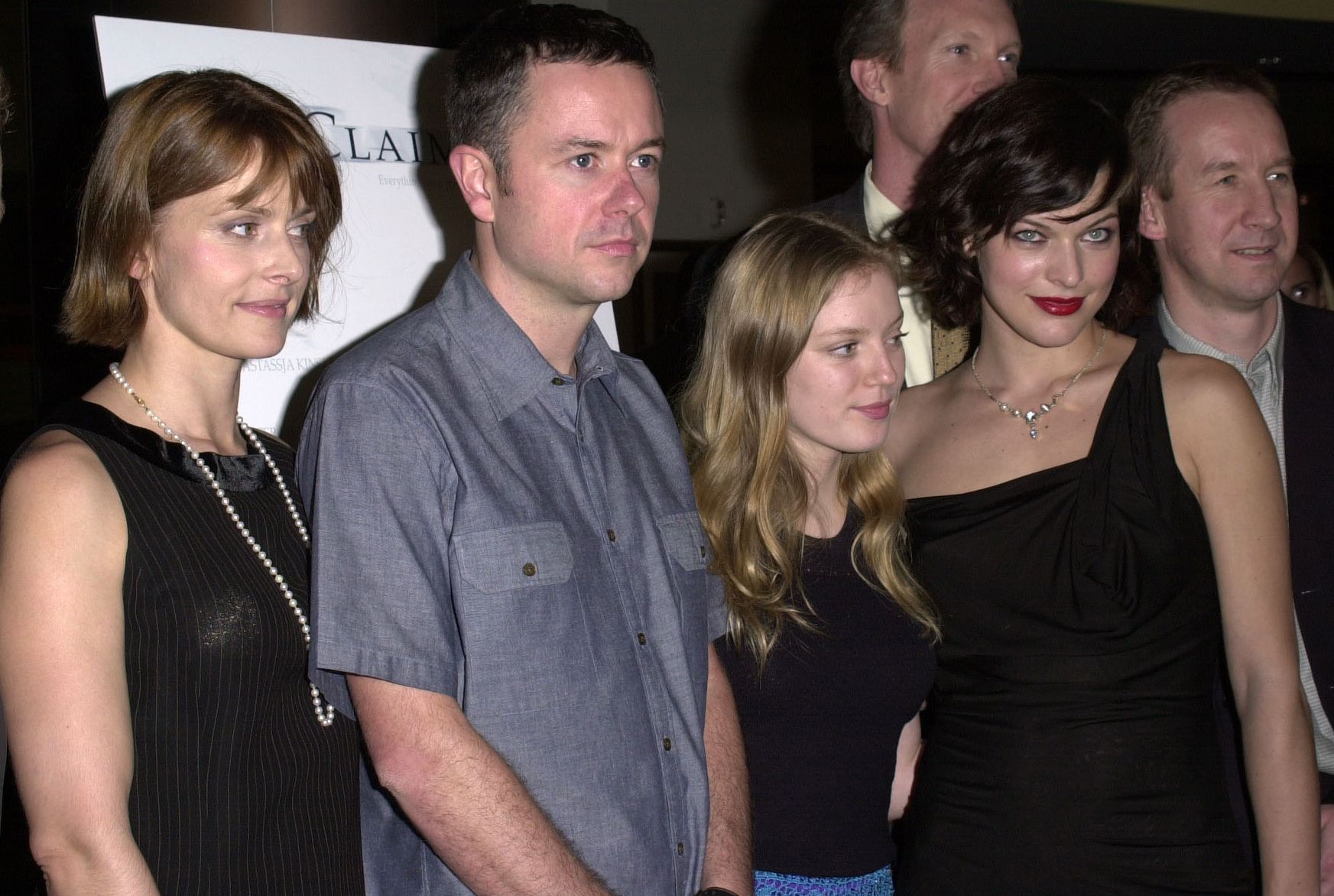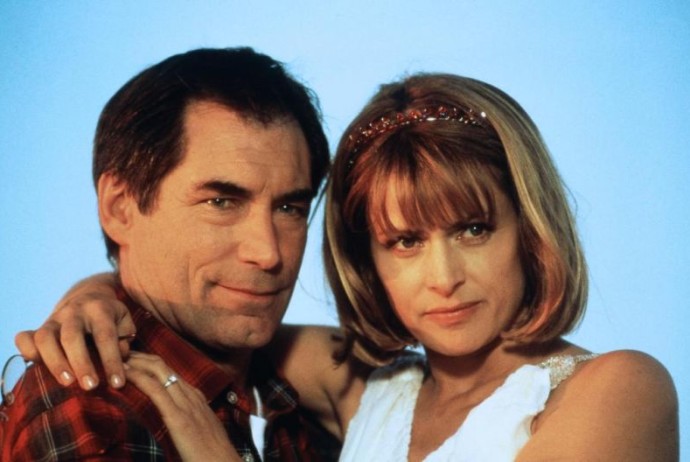Dir: Gigi Gaston
Star: Alyson Hannigan, Nastassja Kinski, Jennifer Esposito, Todd Field
a.k.a. Rip It Off
There’s a quote from Hannigan about this movie; I can’t find the original source, but it’s worth bearing in mind with regard to this misconceived slab of misandry, disguised as a heist movie:
“It was a nightmare to shoot: the producer and director were constantly fighting… It was completely unorganised. Alexis [Denisof] was also in it and he and I would go into each other’s trailers and go, ‘We’ve made a huge mistake, this is the worst thing ever!’ It just went terribly, terribly wrong.”
The sad thing is, when it’s not engaging in unsubtle man-bashing, it isn’t bad. The final third, where the casino robbery finally happens, only to collapse into a series of unfortunate events, is tense and well-staged enough to be interesting. Just a shame you have to sit through the first hour to get there. The original planners of the crime are two Russian criminals. Sergei and Yuri (Brian McCardie and Denisof), using inside help from a casino employee named Troy (Steve Harris), who knows he’s shortly going to be unemployed. The two Russians have girlfriends, Lexi (Hannigan) and Misha (Kinski), who might be more than good friends themselves, and are increasingly unhappy with their lot, particularly the appalling Sergei, who is an unpleasant and brutal piece of work.
When they give Yuri an ultimatum – it’s Sergei or them – he basically goes “bros before hoes”, and casts them out. The disgruntled women bump into Misha’s old friend, Helena (Esposito), and decide to extract revenge through Helena’s ex-husband, police officer Jack Toretti (Field). However, rather than arresting the criminals, Jack and his partner team up with them, and the women are cut out entirely. Even more aggrieved, the trio decide to turn their ex’s against each other, snare Jack with a honey-trap of sex and drugs [allowing the director to give a small role to her long-time partner, Sophie B. Hawkins] and carry out the plan with Troy, all by themselves. For what else could possibly go wrong? Uh, how about, virtually everything?
 Structurally, it’s a mess. The opening scene makes it seem that Jack is going to be the focus of the movie, since it opens with him being chased naked through the streets by the cops. Then the movie shifts into a flashback, and he vanishes almost entirely for the rest of the first half. Thereafter, the film thrashes around, between Lexi, Misha and Helena, unable to settle on providing any one of them with particular depth. It’s never even explained, in any convincing way, why even the least picky of women would want to be in the same room as Sergei, let alone have a relationship with him. [And McCardie, from Glasgow, makes a thoroughly unconvincing Russian – at least Denisof has some appropriate ancestry on his father’s side, though I’m not sure his accent is any better for it]
Structurally, it’s a mess. The opening scene makes it seem that Jack is going to be the focus of the movie, since it opens with him being chased naked through the streets by the cops. Then the movie shifts into a flashback, and he vanishes almost entirely for the rest of the first half. Thereafter, the film thrashes around, between Lexi, Misha and Helena, unable to settle on providing any one of them with particular depth. It’s never even explained, in any convincing way, why even the least picky of women would want to be in the same room as Sergei, let alone have a relationship with him. [And McCardie, from Glasgow, makes a thoroughly unconvincing Russian – at least Denisof has some appropriate ancestry on his father’s side, though I’m not sure his accent is any better for it]
While the alternate title is a clear attempt to confuse viewers with the rather more successful female robbery film, Set It Off, the film’s closest cousin is perhaps Bound, with which it shares the considerably more niche “lesbian heist” genre. Though it comes nowhere near achieving anything like the same sense of steamy noir as the Wachowski Brothers Sisters Siblings managed, instead wandering off in poorly-considered directions like Lexi’s briefly important heroin addiction. This suddenly arrives out of nowhere, leads to a couple of portentous and/or pretentious scenes, then vanishes back into the obscurity from whence it came, never to be mentioned again.
Kinski likely comes out of the mess which is the first hour best, seeming the most well-rounded member of the trio – though that is hardly a glowing endorsement comparing to the seething mass of dysfunctional humanity which populates the movie. Whether through writing or performance Misha’s character seems to consist of more than the word “bisexual” written on a cocktail napkin, and appears to be at least somewhat smart. Though again, you are left wondering how the hell she ended up with losers like Yuri and Sergei. There’s an untold prequel there, though based on Hannigan’s comment earlier, she would have to be even more heavily drugged than Lexi, to get her back onto a movie set with the creators.
As previously noted, things become both more coherent and more interesting once the action kicks off and the robbery plan is put into play. Nastassja seems generally to have shown a curious aversion to firing guns in her filmography, even remaining relatively pacifist in cheerful action fodder like Crackerjack (though she wields a mean cooking pan there). There’s no such aversion here, as the image on top demonstrates, when the intended slick, quick in and out raid degenerates into a strongroom gun battle. And even after they prevail, there’s no honor among thieves, and the gang has one or two nasty surprises as they try to take their ill-gotten gains and make it… [Gasp!] …beyond the city limits.
The ins and outs of the casino business, and how the security measures could be bypassed, would have made for a much more interesting film than the soap-opera nonsense which bogs this down. I’ve no problem with having female leads in such an effort, and even if you want to make an ambiguously gay relationship movie, by all means: go ahead. Just don’t disguise it in the trappings of Ocean’s 11, and staff it with supporting actors from Buffy the Vampire Slayer plus a low-rent version of Melissa Etheridge. Because such a bait and switch is unlikely to impress any viewer, even if they’re actually looking for an ambiguously gay relationship movie starring supporting actors from Buffy the Vampire Slayer, etc. That’s probably about as uber-niche a market as it is possible to get, and disappointment for everyone else is likely close to unavoidable.
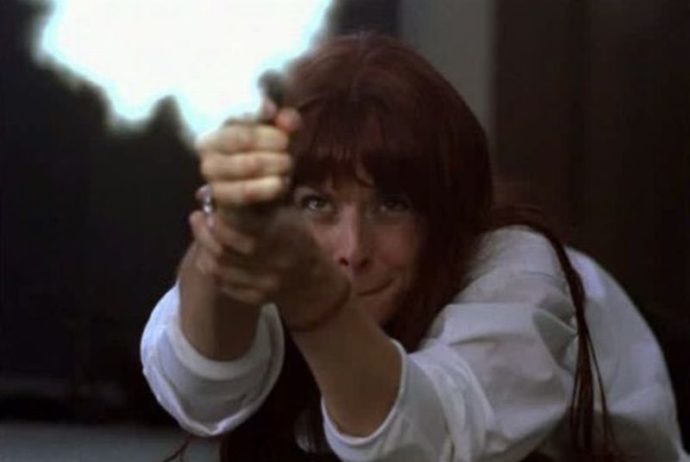
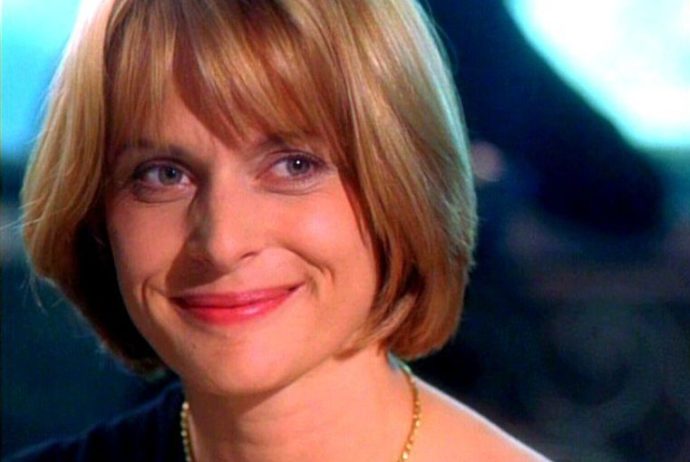
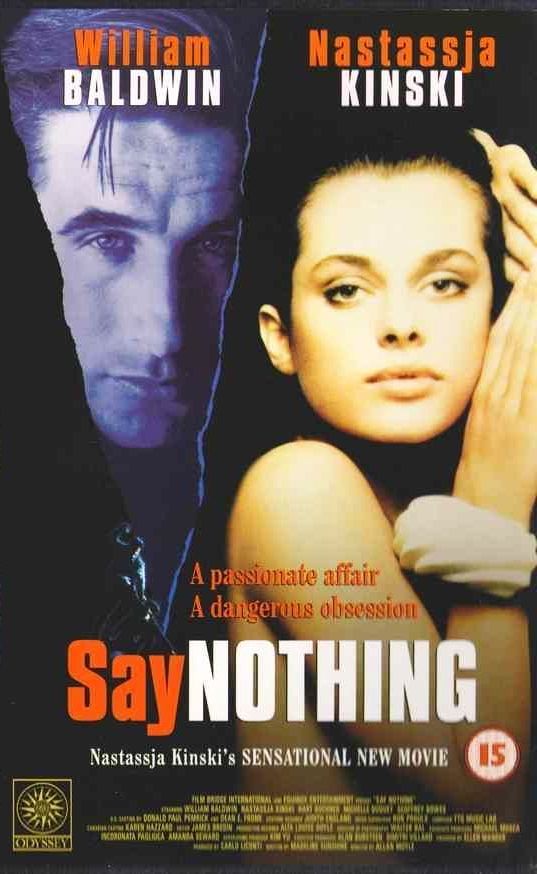 Moving rapidly away from politics, the target for Julian Grant (Baldwin) is Grace Needham (Kinski), whose marriage is currently on shaky grounds. Her husband, Matt (Bochner) lost his job, went into a downward spiral and now sits around the house, drinking. Even when friends give them a vacation to Miami Beach, he refuses to go, so Grace takes the trip by herself. Which is where she meets Julian, who is also at the resort by himself. After a little dining and sailing, they have a briefly passionate encounter on the beach, which Grace immediately regrets. Returning to her home, she’s convinced the best solution is to follow the title’s advice, especially since things seem to be improving again, with Matt finding a great job. However, she’s dismayed when she realizes that his new boss, and the man responsible for her husband’s position, is Julian. For he’s not prepared to regard what happened as a one-night stand, and will stop at nothing to pursue Grace.
Moving rapidly away from politics, the target for Julian Grant (Baldwin) is Grace Needham (Kinski), whose marriage is currently on shaky grounds. Her husband, Matt (Bochner) lost his job, went into a downward spiral and now sits around the house, drinking. Even when friends give them a vacation to Miami Beach, he refuses to go, so Grace takes the trip by herself. Which is where she meets Julian, who is also at the resort by himself. After a little dining and sailing, they have a briefly passionate encounter on the beach, which Grace immediately regrets. Returning to her home, she’s convinced the best solution is to follow the title’s advice, especially since things seem to be improving again, with Matt finding a great job. However, she’s dismayed when she realizes that his new boss, and the man responsible for her husband’s position, is Julian. For he’s not prepared to regard what happened as a one-night stand, and will stop at nothing to pursue Grace.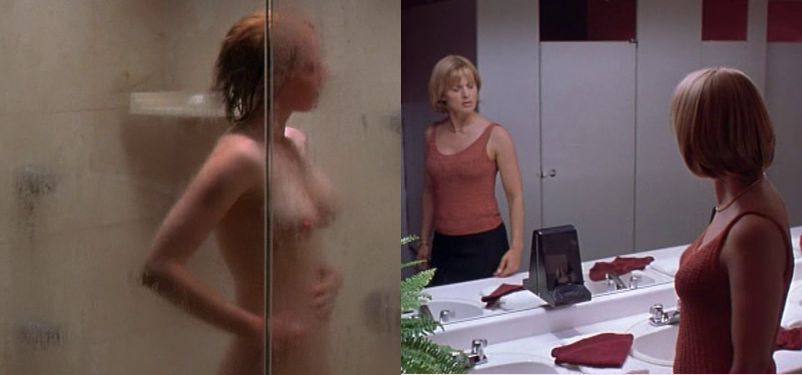
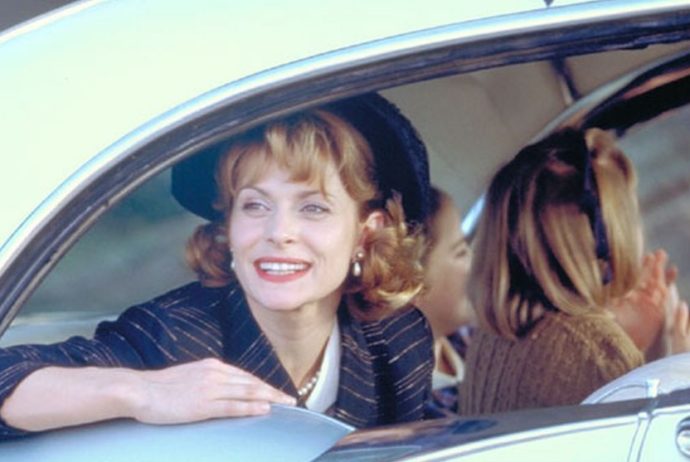
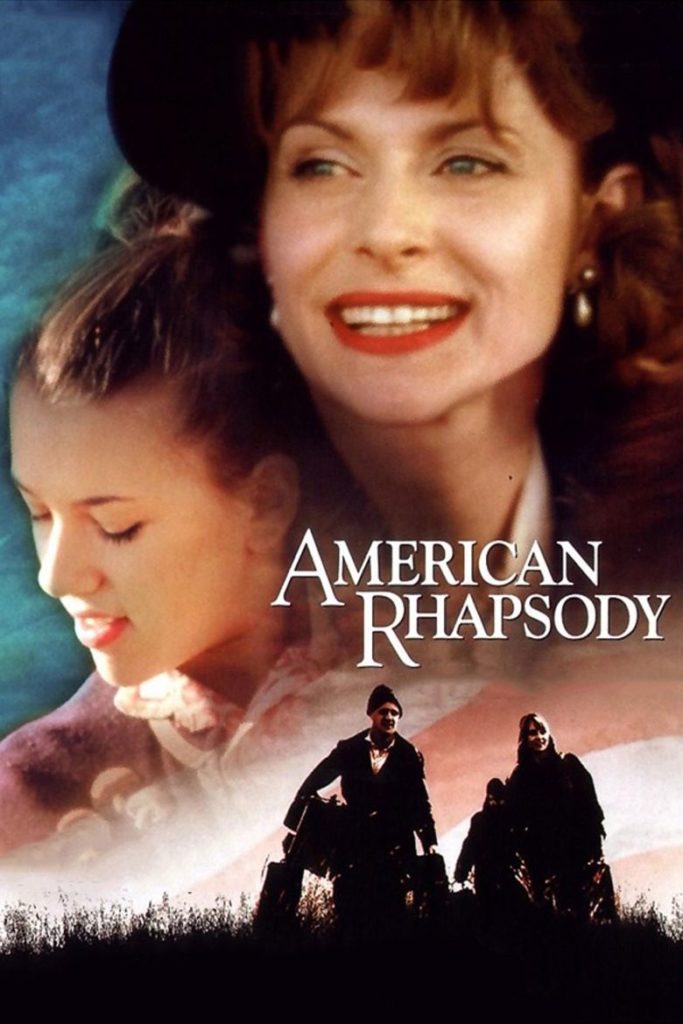 Eventually, her more level-headed father agrees to let Suzanne return to Hungary, and visit her foster family. While delighted to see her, they are now living in a Budapest apartment, and Suzanne gets to experience first-hand the failures of Communism. However, she also discovers the specific reason why her mother was unable to live in the country any longer, and gains a new-found appreciation for what her parents went through in order to give her a better life. So, it all ends in hugs between mother and daughter, because America is the bestest country in the world ever, am I right?
Eventually, her more level-headed father agrees to let Suzanne return to Hungary, and visit her foster family. While delighted to see her, they are now living in a Budapest apartment, and Suzanne gets to experience first-hand the failures of Communism. However, she also discovers the specific reason why her mother was unable to live in the country any longer, and gains a new-found appreciation for what her parents went through in order to give her a better life. So, it all ends in hugs between mother and daughter, because America is the bestest country in the world ever, am I right?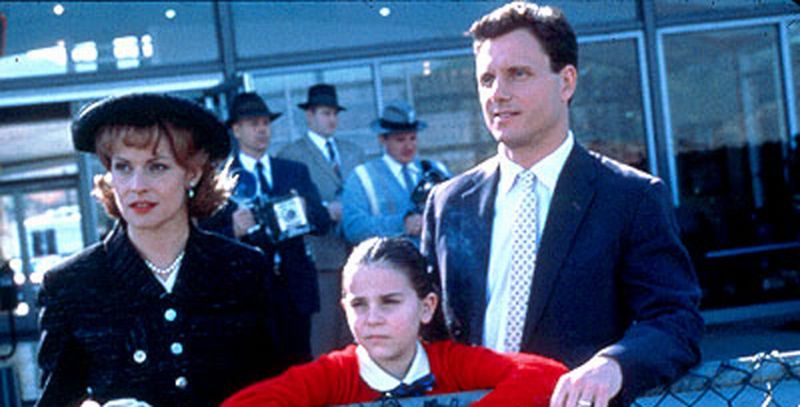
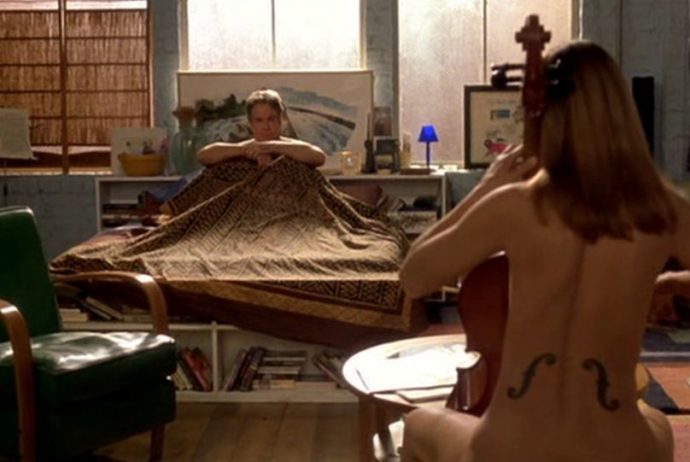
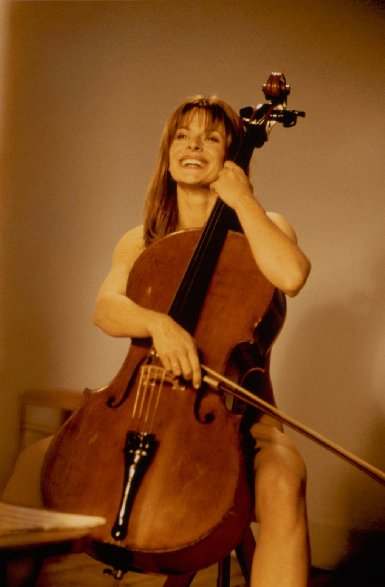 If you’re thinking this sounds tedious, you are right on the mark and I am doing my job with the apathetic synopsis above. For this is one of those cases where the production was rather more interesting that the film itself. Even before it came out, the film
If you’re thinking this sounds tedious, you are right on the mark and I am doing my job with the apathetic synopsis above. For this is one of those cases where the production was rather more interesting that the film itself. Even before it came out, the film 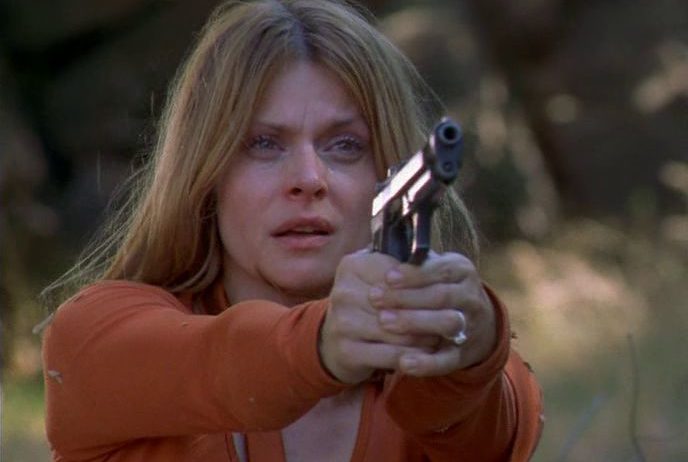
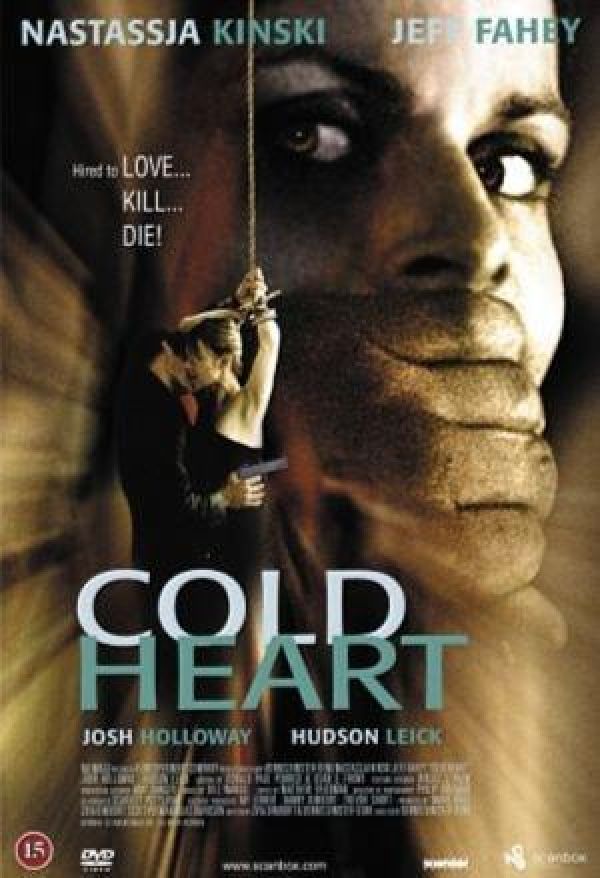 Here, I’ll also mention there are two types of movie psychopaths. Type A are the creepy ones, about whom you can immediately tell something is wrong immediately: the Norman Bateses. Then there is Type B, the suave and charismatic manipulators: the Patrick Batemans. It’s the latter category into which Sean falls. And, hey whaddya know. he immediately ends up working for Dr. Cross’s wife, Linda (Kinski), who runs a movie production company. For what are the odds that he would casually run into her partner, Julia (Leick) at a coffee-stand and charm her into offering him a job? Actually, if you’ve seen many of this kind of thriller, you’ll know the answer is, “about 100%”.
Here, I’ll also mention there are two types of movie psychopaths. Type A are the creepy ones, about whom you can immediately tell something is wrong immediately: the Norman Bateses. Then there is Type B, the suave and charismatic manipulators: the Patrick Batemans. It’s the latter category into which Sean falls. And, hey whaddya know. he immediately ends up working for Dr. Cross’s wife, Linda (Kinski), who runs a movie production company. For what are the odds that he would casually run into her partner, Julia (Leick) at a coffee-stand and charm her into offering him a job? Actually, if you’ve seen many of this kind of thriller, you’ll know the answer is, “about 100%”.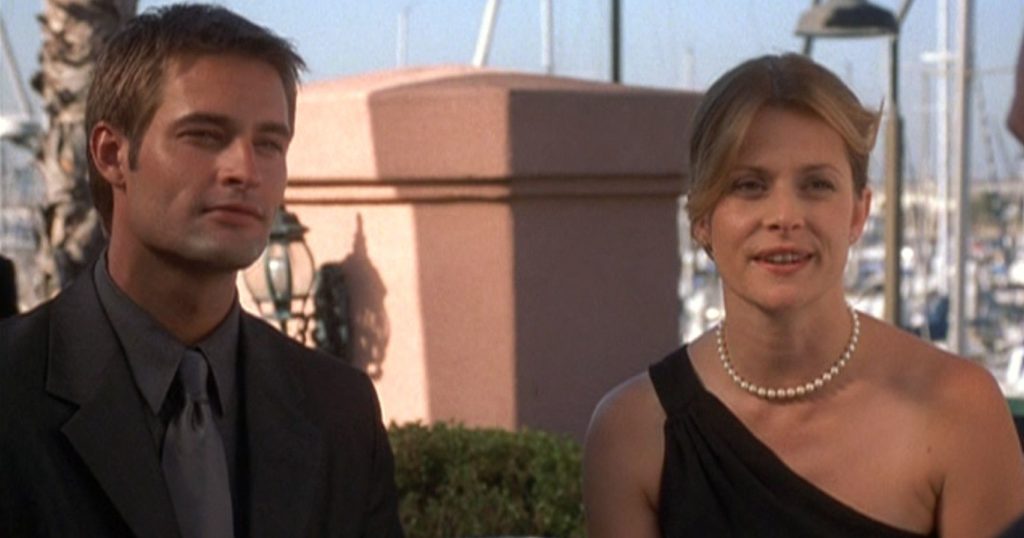
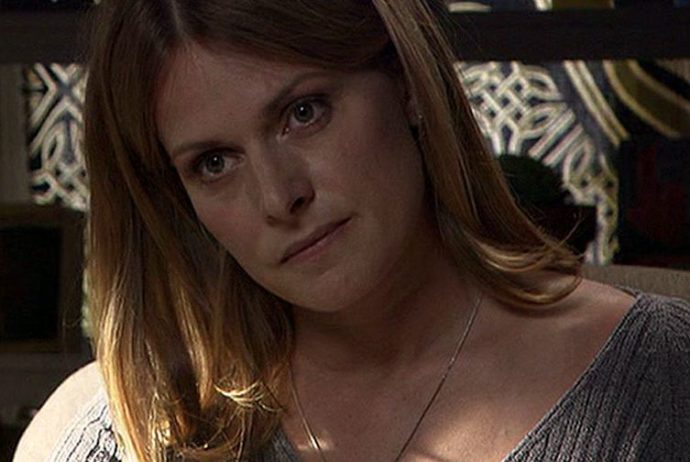
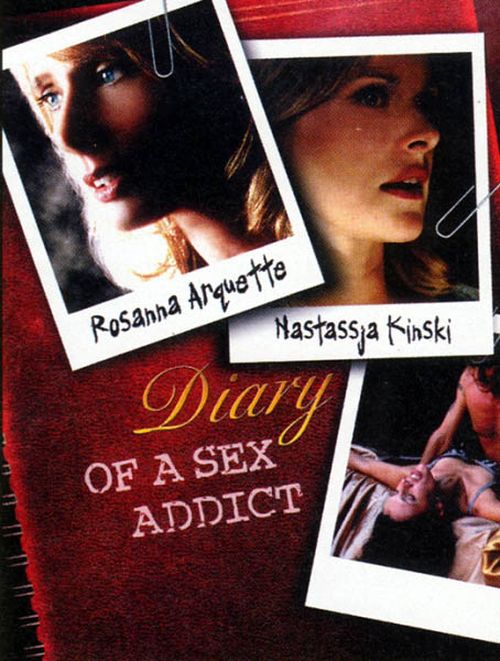 It is, certainly, a title likely to mislead, especially since the two lead actresses remain more or less completely attached to their clothes. There’s no shortage of sex, to be sure, but it’s not by anyone of whom you’ll ever have heard. It’s also a bit of a time-capsule, offering a glimpse of an era when aggressive sexual behavior was rather more acceptable. From a 2016 viewpoint, Horn comes over as predatory, at the very least – arguably even, to borrow a quote from Cersei Lannister, “a bit of a rapist”, since gaining consent hardly seems to be on his to-do list before grabbing on to his next target. You could also make the case he abuses his power, such as with a sous chef at his restaurant. But Horn is not actually an unsympathetic character, and Des Barres’s portrayal gives a bit more depth to him than you’d expected.
It is, certainly, a title likely to mislead, especially since the two lead actresses remain more or less completely attached to their clothes. There’s no shortage of sex, to be sure, but it’s not by anyone of whom you’ll ever have heard. It’s also a bit of a time-capsule, offering a glimpse of an era when aggressive sexual behavior was rather more acceptable. From a 2016 viewpoint, Horn comes over as predatory, at the very least – arguably even, to borrow a quote from Cersei Lannister, “a bit of a rapist”, since gaining consent hardly seems to be on his to-do list before grabbing on to his next target. You could also make the case he abuses his power, such as with a sous chef at his restaurant. But Horn is not actually an unsympathetic character, and Des Barres’s portrayal gives a bit more depth to him than you’d expected.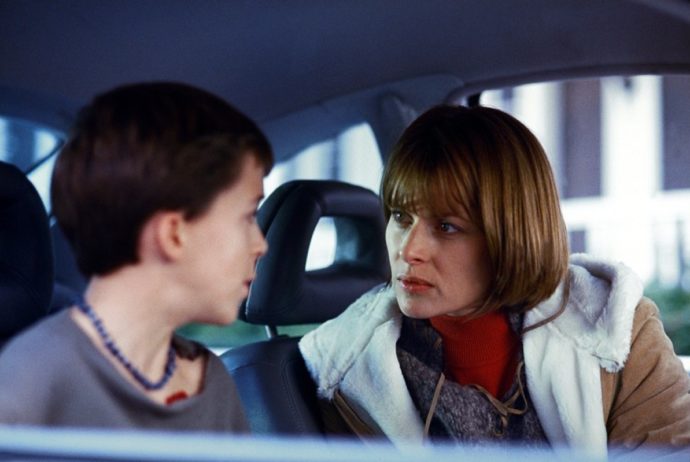
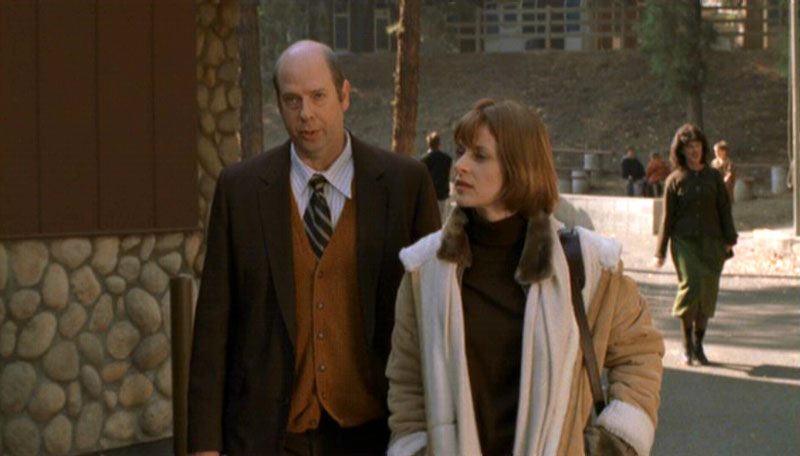
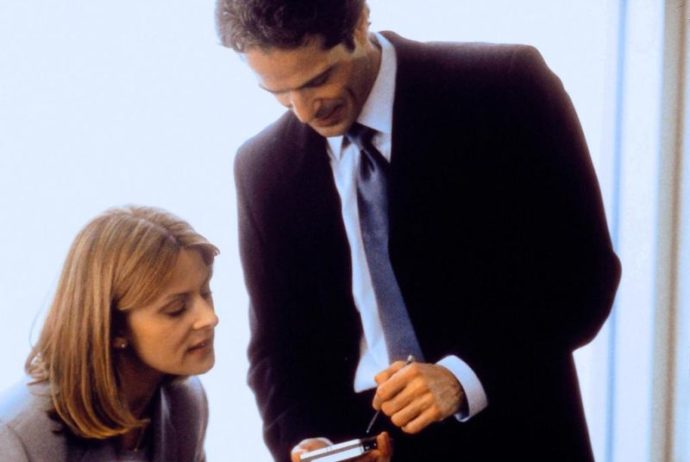
 But Leslie also seems to be completely elusive, and even the private detective Susan hires is, at least initially, unable to make progress, as the address Kevin had for Leslie appears to be a complete dead end, with nobody knowing her there. Is Kevin telling the truth? If not, who is behind it all? Potential candidates include Peggy, as well as Justine, Susan’s younger sister; the two have a strained relationship, because by the terms of their parents’ will, Susan controls the trust fund income Justine gets. That’s a direct result of Justine’s husband being a low-life slimeball with some bad, money-burning habits, so perhaps he’s involved too? You won’t find out the truth until right at the end and… Well, I can’t honestly say I was particularly convinced by the resolution. I guess, in some ways, it “makes sense”, as long as you have a fairly loose definition of what constitutes sense.
But Leslie also seems to be completely elusive, and even the private detective Susan hires is, at least initially, unable to make progress, as the address Kevin had for Leslie appears to be a complete dead end, with nobody knowing her there. Is Kevin telling the truth? If not, who is behind it all? Potential candidates include Peggy, as well as Justine, Susan’s younger sister; the two have a strained relationship, because by the terms of their parents’ will, Susan controls the trust fund income Justine gets. That’s a direct result of Justine’s husband being a low-life slimeball with some bad, money-burning habits, so perhaps he’s involved too? You won’t find out the truth until right at the end and… Well, I can’t honestly say I was particularly convinced by the resolution. I guess, in some ways, it “makes sense”, as long as you have a fairly loose definition of what constitutes sense.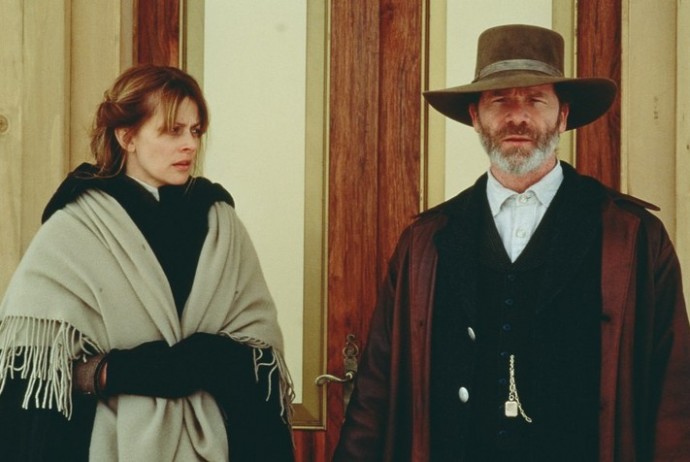
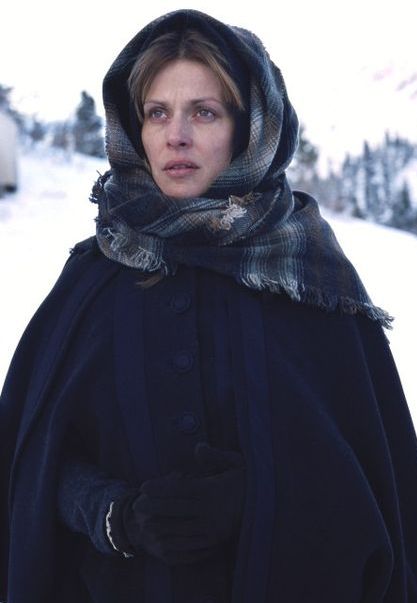 There’s certainly a loose grip of nationality present here, even past the shift of the entire story from Wessex to Old West. Bentley, born in Arkansas, plays a Scot, while an actual Scot, Mullan, portrays an Irishman. Meanwhile, the Ukrainian Jovovich is inexplicably a Portuguese character, which makes Kinski’s geographical shift from Germany to Poland seem relatively trivial. Most are fine, though being so used to seeing Milla kicking zombie ass, it takes a bit of adjustment to seeing her in a petticoat, playing the owner/madam of the town’s saloon/brothel. For Kinski, of course, this is not her first time at the “tragic heroine in a Hardy novel” rodeo – I note that Winterbottom also did Jude a few years earlier – and she looks suitably wan as she slowly fades away to – and I trust I’m not spoiling this for anyone – her eventual demise. It doesn’t appear to be an enormous stretch for her talents, and I can imagine the director passing her acting notes such as “Look iller”.
There’s certainly a loose grip of nationality present here, even past the shift of the entire story from Wessex to Old West. Bentley, born in Arkansas, plays a Scot, while an actual Scot, Mullan, portrays an Irishman. Meanwhile, the Ukrainian Jovovich is inexplicably a Portuguese character, which makes Kinski’s geographical shift from Germany to Poland seem relatively trivial. Most are fine, though being so used to seeing Milla kicking zombie ass, it takes a bit of adjustment to seeing her in a petticoat, playing the owner/madam of the town’s saloon/brothel. For Kinski, of course, this is not her first time at the “tragic heroine in a Hardy novel” rodeo – I note that Winterbottom also did Jude a few years earlier – and she looks suitably wan as she slowly fades away to – and I trust I’m not spoiling this for anyone – her eventual demise. It doesn’t appear to be an enormous stretch for her talents, and I can imagine the director passing her acting notes such as “Look iller”.